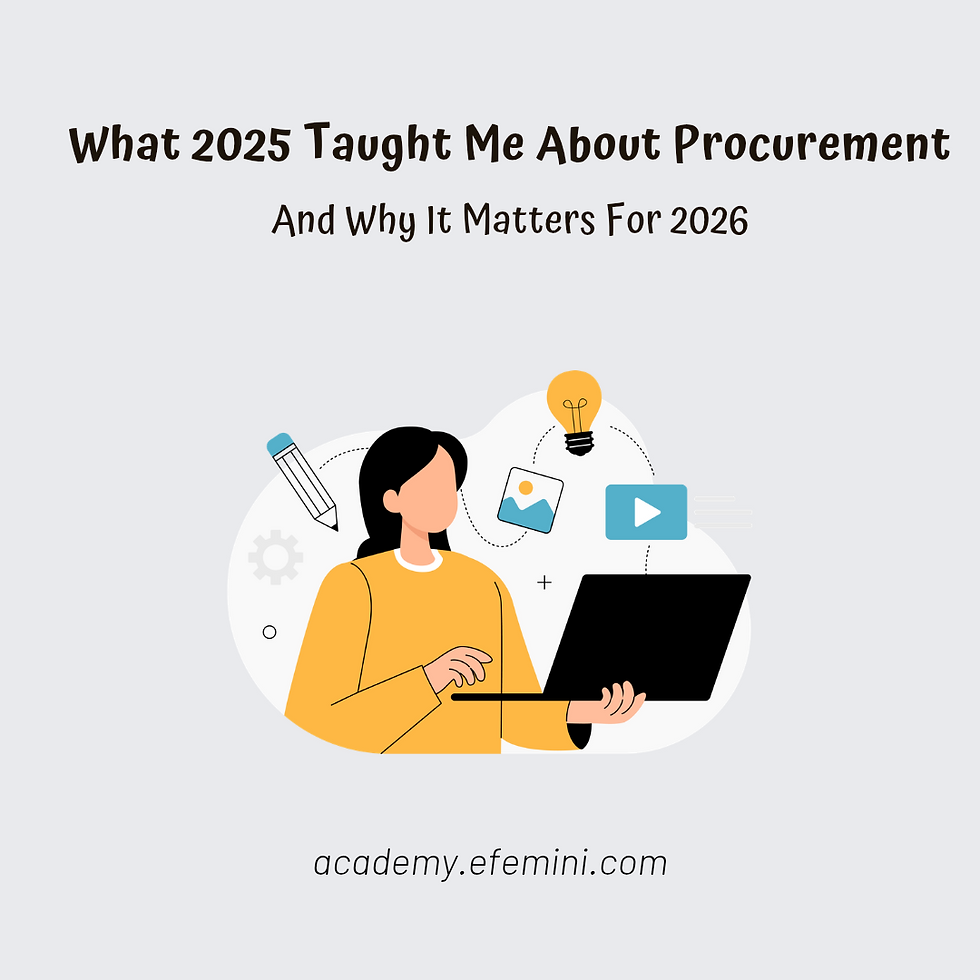What Makes Procurement Contracts Successful
- Efemini

- Aug 30, 2025
- 2 min read
In procurement, contracts are more than just documents; they are the foundation of strong business relationships and seamless operations.
A well-structured procurement contract can be the difference between a smooth supply chain and a costly dispute.
But what exactly makes a procurement contract successful? Is it just about getting the best price, or does success lie in the fine print?
In today’s blog post, we'll explore the key elements that contribute to a contract that not only protects but also enhances business outcomes.

🧩 Be Clear From the Start: Imagine ordering a custom-made suit, but not specifying the fabric, size or color. That’s how vague procurement contracts cause problems. A solid contract clearly defines what’s being bought, expected quality, timelines and performance standards. The more specific you are, the fewer surprises you’ll face.
🧩 Know Who’s Doing What: A successful procurement contract doesn’t just list the tasks, it spells out who is responsible for what. Who inspects the goods? Who covers delivery risks? Without this clarity, everyone assumes the other person is in charge and that’s when things fall apart.

🧩 Expect the Unexpected: From supplier delays to sudden price hikes, anything can happen. That’s why great procurement contracts include risk management plans: things like penalty clauses, force majeure, or backup options. Planning for problems helps you stay in control when the unexpected strikes.
🧩 Keep It Fair: A one-sided contract may look like a win at first, but it often damages trust. Fair payment terms like milestone payments or retainers keep suppliers motivated and buyers protected. When both sides feel respected, everyone wins.
🧩 Track What Matters: Just because a contract is signed doesn’t mean the job is done. Set clear KPIs, conduct regular progress reviews, and keep communication open. Great procurement contracts come with a game plan for tracking performance, not just promises on paper.

🧩 Prepare for Conflict the Smart Way: Disagreements happen. But not every issue needs to end up in court. Include a clear dispute resolution process like mediation or arbitration so issues are handled professionally and don’t spiral out of control.
🧩 Stay Open to Change: Markets shift. Priorities evolve. The best procurement contracts aren’t rigid; they allow room for adjustments. A clause to address triggers and processes for contract amendment where necessary, helps you stay flexible without losing sight of the original agreement.
Procurement contracts aren’t just about getting the best deal. They’re about clarity, fairness and adaptability. When done right, they build trust, reduce risks and drive better results for everyone involved.
Need procurement specific training? Reach out to support@efemini.com and we'll get you sorted.




Comments